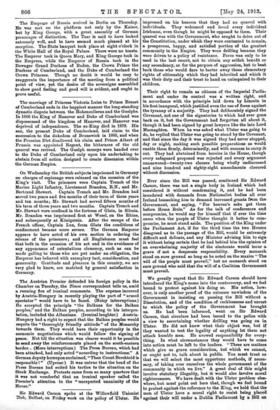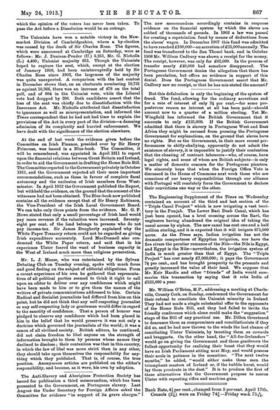We greatly regret that Sir Edward Carson should have introduced
the King's name into the controversy, and we feel bound to protest against his doing so. His action, how- ever, is only another proof of the extreme unwisdom of the Government in insisting on passing the Bill without a Dissolution, and of the condition of recklessness and unrest to which the policy of the Government has brought us. He had been informed, went on Sir Edward Carson, that circulars had been issued to the police with a view to ascertaining whether drilling was going on in Ulster. He did not know what their object was, but if they wanted to test the legality of anything let them not attack humble men. He avowed responsibility for every- thing. In what circumstances they would have to come into action must be left to the leaders. " These are matters which give us grave consideration, but which we cannot, or ought not to, talk about in public. You must trust us that we will select the most opportune methods, if neces- sary, of taking over ourselves the whole government of the community in which we live." A great deal of this might involve statutory illegality, but it would also involve moral righteousness. We have dealt with the Ulster problem else- where, but must point out here that, though we feel bound to protest against the reference to the King, we hold that the men of Ulster have a moral right to resist being placed against their will under a Dublin Parliament by a Bill on
which the opinion of the voters has never been taken. To pass the Act before a Dissolution would be an outrage.











































 Previous page
Previous page